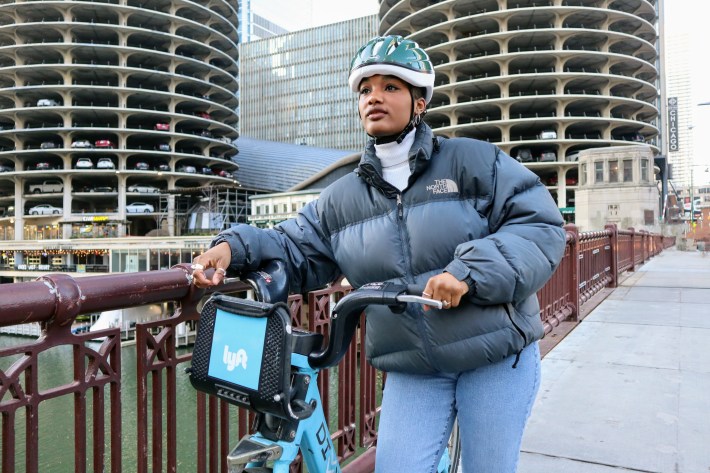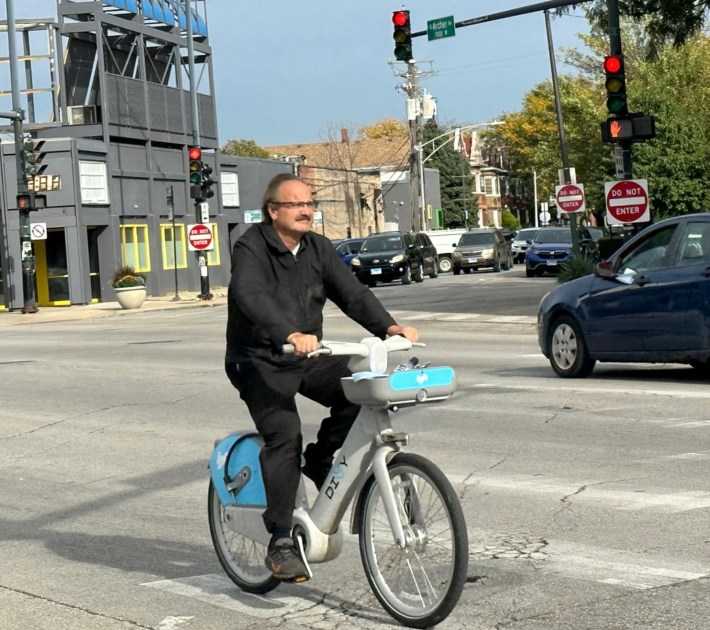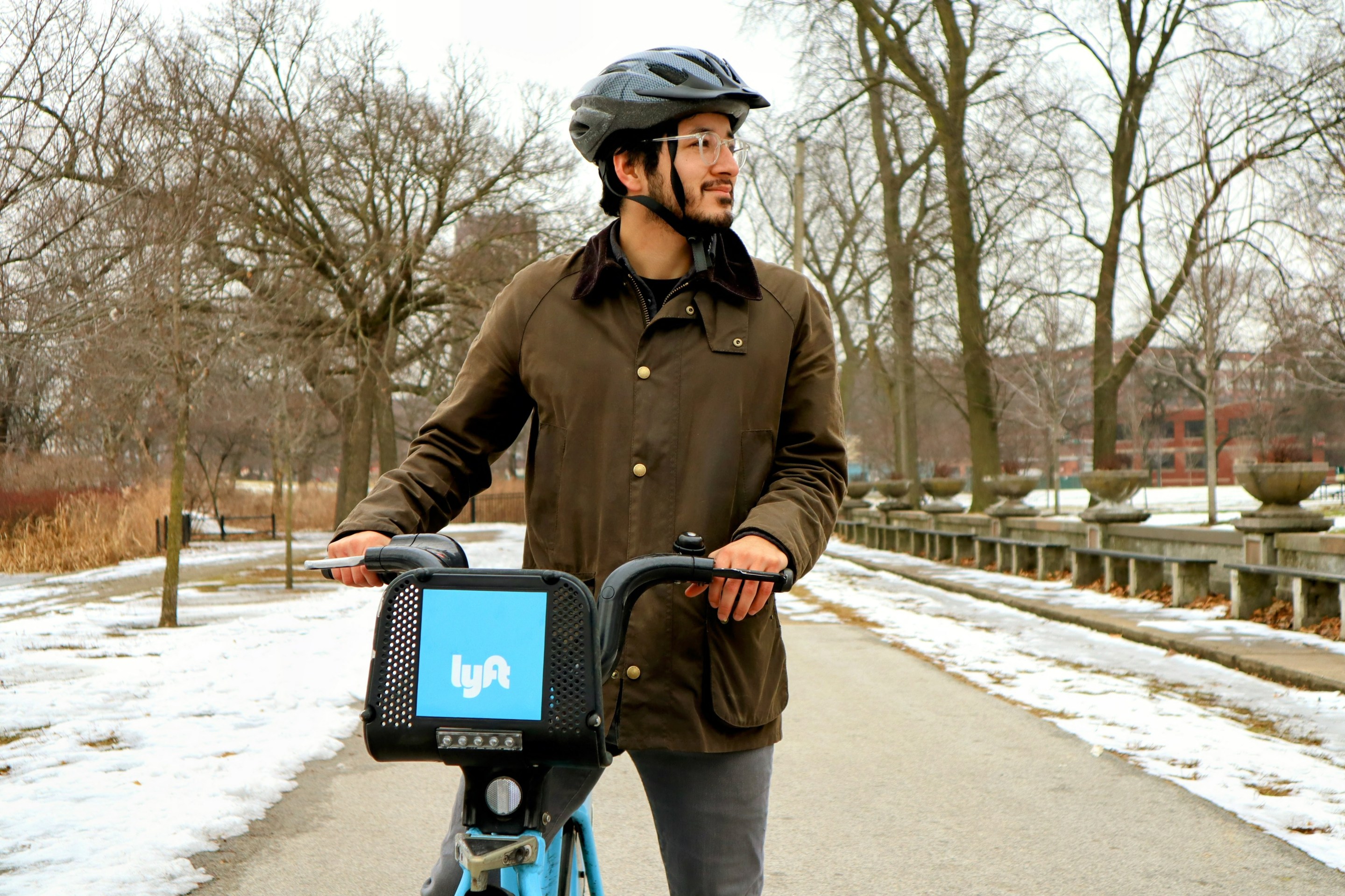Divvy recently announced that it will be raising its prices on February 5, with regular annual memberships going up by about 10 percent.
"Together with our city partners, we continue to ensure Divvy remains a financially sustainable system that provides world-class service, enhanced value for members, and equitable access for clean transportation options," a Divvy spokesperson told Streetsblog Chicago. Below is the breakdown of how Divvy prices are going to change next month.
First, let’s look at the price changes themselves. The annual regular Divvy membership price will increase from $130.90 to $143.90. The Day Pass price will increase from $16.50 to $18.10. There are many other relatively minimal price changes.
The one thing that will stay the same is the Divvy for Everyone (D4E) program, which, as always, offers $5 yearly memberships to lower-income residents. Currently a single Chicagoan making $35,310 or less a year is eligible.

“Innovative efforts like Divvy for Everyone have made Chicago’s bike share system much more accessible to low- and moderate-income people,” said Jim Merrell, managing director of advocacy for the Active Transportation Alliance. "We must build on that work to create an equitable bike share system."
The higher prices won't impact lower-income residents, but they could be a barrier for working-class Chicagoans who make too much money to qualify for D4E, but not enough to easily afford $143.90 a year.
DePaul University transportation expert Joseph Schwieterman said his "hunch" is that most people who currently have Divvy memberships won't have major problems with the price increase. "The demographics of Divvy tend to be heavily skewed towards middle- and upper-income residents, particularly those with education... And we see that with the use statistics heavily skewed toward the central area, and the Northwest and North sides." He argued that keeping D4E memberships virtually free, subsidized by higher rates for mostly middle- and upper-income residents and visitors, is an equitable practice.
Schwieterman thinks that the price change is "mostly aligned with inflation." He added, "The price of steel has risen and just the cost of manufacturing goods has risen. And then Divvy bikes and scooters tend to have fairly short lifespans so they need to be replaced. [That's not really true of non-electric Divvy bikes, some of which have been on the street for the better part of a decade. - Ed] Also there's the bitter reality that batteries don't last long and there's Chicago's notoriously bad weather. So they're out and they're exposed to constant temperature change and things like that, affecting the durability of the battery."

Merrell is concerned that raising prices will put Divvy out of reach for thousands of people who would otherwise benefit from using bike-share as a sustainable transportation option. Instead, he argued, more people should be able to use Divvy "two-wheeled public transit" by making it more "affordable, accessible, and reliable. By keeping prices affordable, we not only promote social equity but also encourage a shift towards sustainable transportation choices, contributing to reduced carbon emissions, improved air quality, and enhanced public health."
Chicago resident and Divvy member Rosie Nolan said she uses bike-share every day when it’s nice out and about once a week during the winter. The upcoming price change has her frustrated because she believes Divvy’s already "prohibitively expensive" for non-members. Nolan said that she might cancel her membership and just buy her own bicycle. She hasn't done that so far because of the convenience of biking to a destination, then being able to take a bus, train, etc. back to her starting point.
"It's frustrating that the CTA is kind of falling apart right now," Nolan added. "And the city needs to be finding ways to get money for transportation." She argued that a good way to alleviate CTA challenges would be to make bike-share more accessible to all Chicagoans. On the plus side, last spring the system expanded to cover the entire city.

Did you appreciate this post? Please consider making a tax-deductible donation.






